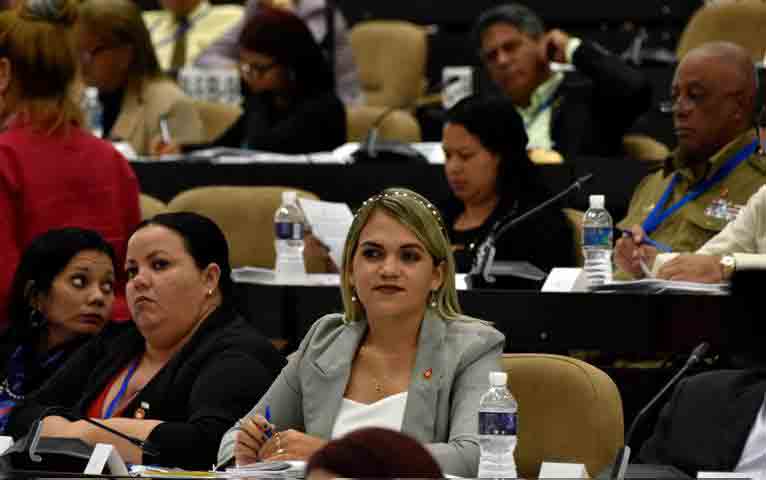On the opening day of the First Ordinary Session of the National Assembly of Popular Power (ANPP) in its 10th Legislature, the members of that body discussed and endorsed the initiative, which mainstreams the rights of Cuban children, adolescents and youth, and conceives them as agents of social and cultural transformation.
When presenting the proposal for an opinion on this policy, the president of the ANPP Commission for Youth, Childhood, and Women’s Equality Rights, Arelys Santana, stated that she seeks to articulate the factors involved in the care and protection of these people at all stages of their lives.
The initiative, which had an intersectoral and multidisciplinary elaboration in which civil society actively participated, contains a systematization of the background, the current and demographic situation, potentialities, and an exhaustive description of the general and specific problems related to these groups.
Santana expressed that the implementation requires comprehensive actions, aimed at ensuring that in the environment where they operate, the social, human and material conditions exist to guarantee the promotion and empowerment of their full development.
For his part, Vice Prime Minister Jorge Luis Perdomo specified that the policy comprises a total of 120 actions, of which 92 correspond to the first stage of its implementation, from 2023 to 2025, and the rest to the period from 2026 to 2030.
He added that it is an open proposal, which will continue to grow, and that it is articulated with the Policy for Attention to Demographic Dynamics, the National Plan for Economic and Social Development, the Program for the Advancement of Women, and the Program to Fight Racism and Racial Discrimination, among other initiatives.
According to Perdomo, with the approval of this policy, the basis for a bill that replaces the current Childhood and Youth Code, in force since 1978, will be ready.
In turn, Deputy José Carlos Cruz, from the central province of Ciego de Ávila, considered that this proposal is strategic for the country, because it ensures the continuity of the revolutionary process, and ratifies the will of the State to work for the benefit of children, adolescents and young people, while taking into account criteria issued by themselves.
Meanwhile, young legislator Karla Santana, from Havana, stressed that the document has the virtue of thinking of a better future for her and her peers, and also provides the tools to achieve that future.
ef/ro/mar









